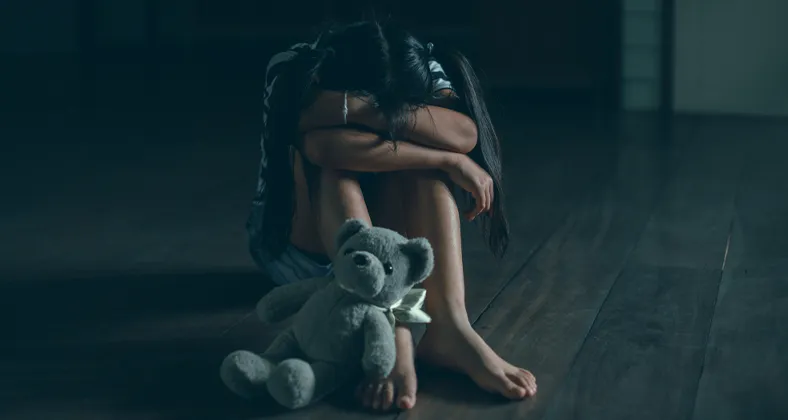Parents are godly figures for every child, and parenting is challenging. There are a lot of things that you have to take care of when you become a parent. You have to see and judge what is right and wrong for your kid. You have to worry about the child’s future brought up by the extra care they take to pave a beautiful path for themselves when they grow up. However, due to increasing digitalization, many problems are faced by children that can lead to harmful mental issues like depression. In the present time, many kids are undergoing childhood depression.
From 2016 to 2019, 5.8 million children aged 3 to 17 years (or 9.4% of all children) received a diagnosis of anxiety. Between 2016 and 2019, 2.7 million children aged 3 to 17 years (or 4.4% of all children) were diagnosed with depression. You may identify toxic relationship indications, mend damaged relationships by setting ground rules, and make the transition out of a poisonous relationship easier with the support of a third-party, unbiased, and reputable specialist in marriage therapy or relationship counselling. You don’t have to worry about the ratio, as this blog will guide you through what you need to know about childhood depression and how to deal with it as a parent. Let’s study more about the same.
What is childhood depression?
You might have noticed that your kids feel sad and lonely and feel like they have nothing to do by becoming hopeless. Also, if you take these symptoms very casually, please stop; these ups and downs are not that simple. They could become disinterested in activities they formerly enjoyed, struggle to fall asleep, or always feel exhausted. Children who experience depression may also exhibit irritability, difficulty focusing, or even contemplate suicide. It seems like a menacing cloud hanging over them. The fog can occasionally be lifted by seeing a therapist, spending time with encouraging friends and family, and perhaps taking medication. If an adult notices a youngster acting in this manner, they should listen, pay attention, and seek assistance.
What are the symptoms of childhood depression?
Here are some of the symptoms that you need to know about childhood depression that will help you understand what your child is going through.
Consistent sadness: This is the most common thing that the child shows. You have noticed that your child seems persistently sad or irritable, often without reason.
Disturbed Sleep Patterns: You might sleep for long hours and then be sleepless at night. Other disruptions include trouble falling asleep or resting too much.
School performance decline: A sudden drop in academic performance.
Transformations in hunger: influential weight loss or gain due to changes in eating habits.
Being Lazy: They may be feeling tired and exhausted all the time. Children might also face problems concentrating.
Feelings of guilt or worthlessness: Excessive guilt and feelings of being useless or unimportant.
What is the leading cause of childhood depression?
Here are some of the causes that usually happen that might lead a child into depression:
- Chronic conditions, including diabetes and other mental health issues.
- Depression in the family history.
- Inability to complete assignments like learning to read or keeping up with classmates in other subjects.
- Divorce of the parents.
- Extreme stress trauma (either physical or emotional), abuse, or maltreatment.
- Loss of a relationship, such as moving away or losing a lover or girlfriend; loss of a parent, caregiver, or other loved one.
- Additional learning, behavioural, or developmental issues.
How is depression in children treated?
Well, to treat depression, there are many different types of ways that will make your child comfortable with the problems they are facing.
Therapy: Your child can be treated happily by the therapist, and they will easily express all their feelings and emotions, which will help them develop coping skills.
Parental Involvement: As a parent, you can help them know about their problems and what they face daily.
Medicines: Medicines are helpful but will also cause them several other problems, like constant sleeping and being inactive. In severe cases, doctors may prescribe medication, usually after careful evaluation.
Healthy Lifestyle: By encouraging them to go to outdoor games and giving them nutritious food, they can recover from depression in less time. Lifestyle plays a vital role in kids’ lives, as it will shape their coming days.
Supportive Environment: Creating a loving and understanding home environment is crucial for a child’s mental health. Acknowledge and reward positive behaviours to boost self-esteem.
School Support: Collaborate with teachers and staff to address academic and social challenges. Foster healthy friendships and social interactions for emotional support.
When is the right time to reach out about child counselling?
Suppose you notice changes in your child’s behaviour, like irritation, mood swings, or throwing things to get your attention. Then, this is the time to take them to the counsellor without further delay. The counsellor will treat them correctly, and they will identify all the problems your child faces. They might also be facing problems like bullying, loss, or family issues, so it’s a good moment to reach out. You need to trust your instincts and pay attention to every little detail about your child.
Summing it up,
Depression is thought to be caused by a difference in the structure and function of your child’s brain that controls the intensity of sad or irritable moods. There are many causes that you can see that result in a child’s depression. But if this is being taken notice of in the early days, then there are chances that you can make your child stay away from all these mishaps. Always remember that early intervention can prevent issues from getting worse. Counsellors are like friendly guides who help kids understand and cope with their feelings.

